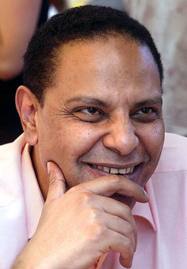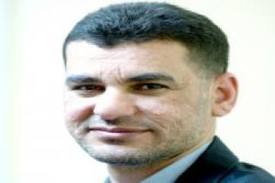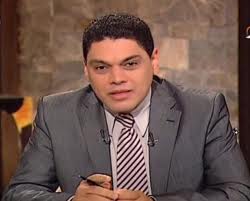Egyptians are clinging onto hopes that their first civilian president will right Egypt’s political ship, as it veers off course into uncharted and dangerous waters. While revolutionary camps wait to see if the 25 January uprising’s goals will ever be fully achieved under Mohamed Morsi’s leadership, most stand guard awaiting a retun of a Mubarak-era autocrat who evolves into a new pharaoh. In almost all columns and opinion articles, writers in the Egyptian press addressed their new head of state with a set of advice and recommendations for the future.
Some columnists expressed their wishes and demands in the form of open letters to the new president, others laid bare the hard road ahead, offering suggestions to the many unsolved issues awaiting Morsi and the nation.
 Alaa Al-Aswani
Alaa Al-Aswani
Al-Masry Al-Youm
Despite having repeatedly heard the old, tired stereotype that the Egyptian people are unprepared for democracy, a notion expressed time and time again by both international and national voices, Alaa al-Aswani strongly believes the Egyptian people have always been ready, leaping at the chance to become the epicentre of all historical revolutions witnessed by the country.
He considers the Egyptian nation a kaleidoscope of social and cultural backgrounds, capable of mobilising itse lf toward the achievement of a common aim, when circumstances necessitate.
Al-Aswani analyses the harsh conditions inflicted deliberately, as he puts it, by the Supreme Council of Armed Forces (SCAF) on the ordinary Egyptians, whether in terms of economic strangulation, insecurity, repression of revolutionists, violation of female demonstrators rights, and the continued coercion of Coptic Christians.
All this, in the author’s view, has been carefully orchestrated by the SCAF in the hopes that the people will resort to a presidential candidate who will bring back security, i.e. Ahmed Shafiq. The plan was so carefully managed to the point that governmental institutions, especially the media, were all not only dedicated to supporting Shafiq’s campaign, but also readied to vilify his opponent, namely the Muslim Brotherhood, so as to create widespread fear among the Coptic community.
A surprise, however, laid waste to the SCAF’s plans, when 8 million voters supported Mohamed Morsi, bolstering the 5 million-strong voting bloc of the brotherhood. This made Morsi the first ‘freely’ elected president in Egyptian history, and proved Egyptians, while not necessarily falling in line with the brotherhood’s platform, would have rather isolated Mubarak’s faithful disciple, Shafiq. This also demonstrated that while the judiciary system is greatly influenced by the SCAF, there are still honest and respectable judges who dared to form the ‘Coalition of Judges for Egypt,’ and independent group of judges who chose to independently evaluate the run-off vote counts.
Al-Aswani challenged Morsi to act as the revolution’s guardian. He called upon Morsi to end all ties with the brotherhood, ensure fair treatment for the revolution’s victims, inflict just penalties upon the culprits, preserve the rights of the Coptic minority, and safeguard the freedom of expression and creativity. Al-Aswani warned Morsi against applying Islamic jurisprudence, as its aims could not be applied before ending poverty, hunger, and disease.
 Ibrahim Mansour
Ibrahim Mansour
Al-Tahrir newspaper
In a few days, Mohamed Morsi will officially undertake his presidential authroities, inaugurating the first civilian rule of the country’s history and ending three dark decades of Hosni Mubarak’s regime.
Despite the euphoria surrounding the election, Ibrahim Mansour notes the new president’s road is still littered with large predicaments ahead. He writes the Muslim Brotherhood’s victory was a reactionary move in order to self-guard themselves from the return of a Mubarak proxy.
Mansour asserts that the new president must be compelled to resign from his affiliation to the brotherhood and cut ties with Mohamed Badie, the general guide of the once-banned group, in order to make his intentions clear to the public. In Mansour’s estimation, the brotherhood’s existence is now pointless, unless it obtains a license of being a charity organisation, similar to many philanthropic institutions operating without a general guide.
The writer praised Morsi’s pre-presidential attitude, enamored at how he used to drive his own car to reach talk show studios or simply walk in the streets without guards. Morsi is the only person who reset the tired templates of previous Egyptian presidents, who ideally should have always served the Egyptians public and open the doors of the presidential palace for ordinary people. The writer pleads with Morsi’s never to lose focus of the 25 January revolutionary aims and help in re-creating a true civil democratic Egypt.
 Moataz Billah Abdel Fatah
Moataz Billah Abdel Fatah
Al-Watan newspaper
Egypt’s Mohamed Morsi has five cardinal issues to set upon, and Moataz Abdel Fatah hopes to prioritise those issues for the president.
In his column, ‘urgent to the new president,’ Abdel Fatah sends a letter to Morsi, listing five challenges to tackle in the coming period.
Abdel Fatah advises Morsi to organise his priorities and to forgo the pull to become ‘Egypt’s new Superman.’ On the top of Abdel Fatah’s list to Morsi is the issue of indefinite powers. He stressed that true authority is strongly intertwined with honesty and integrity. The writer advised Morsi to refrain from the allure of power. Second on the writer’s list was the issue of a civilian power.
In Abdel Fatah’s estimation, Egypt’s military brass is more confident in asserting its dominance over the first civilian president. Morsi will have to secure public and private agreements with these institutions. The third challenge facing Morsi is the daunting task of removing the military out of all affairs and confronting the ‘the High Commander of the Armed Forces.’ Abdel Fatah states if Supreme Council of the Armed Forces (SCAF) transfers power without ‘providing the help’ in restructuring the state, it suggests the intention to get back to power once again.
Abdel Fatah recommends that Morsi works on the dilemma of ‘the Higher Commander of Squares’ referring to the revolutionary powers that will assess the new president’s performance as it relates to the uprising. The writer asserts that the public should allow three months to pass before evaluating Morsi’s decisions. Finally, the writer hails the new president and welcomes him to meet the expectations of all Egyptians, as for many in this country, he is the first real ray of hope at this critical juncture.
 Ziad Bahaa Al-Din
Ziad Bahaa Al-Din
Al-Shorouk newspaper
Despite lacking personal charisma, and being a substitute presidential candidate instead of Muslim Brotherhood icon Khairat El-Shater, Mohamed Morsi won the presidency of Egypt.
In his column, ‘post presidential,’ Ziad Bahaa Al Din examined the extreme polarisation of found in the testy political waters of the elections runoff.
Bahaa Al Din who believes that while most of those who cast their votes in the runoff did not vote for Morsi or his rival Ahmed Shafiq in the first round, instead they had to vote for a singular candidate they could most likely bear for the time being. Those voting for Shafiq feared the loss of the civil state, and those voting for Morsi did their best to prevent a return to the old days of the National Democratic Party.
In light of the great extent of the polarisation, which pitted the nation in a testy competition between advocates of conflicting visions of the Egypt of the future, Bahaa Al-Din suggested reconstructing the political map in order to encapsulate the diverse cultural, social, and economic views present in the country. He denounced the one-line slogans championed by some political parties hailing the concept of a ‘free market economy with social justice,’ as lacking a coherent economic vision.
He called upon politicians to tackle issues that matter most to the broader public, who have had to tighten their belts under the strains of harsh economic conditions following the uprising. Bahaa Al-Din urged the political powers to agree upon a new constitutional drafting committee representative of Egyptian sensibilities, which are not determined by loyalty to either the religious or civil state.
He then called upon those who stacked the judicial system in their favour for the first free presidential elections, to refrain from selectively rejecting court rulings not fitting into their narrow political interest, such as the decision of the Supreme Constitutional Court to dissolve the parliament. In Bahaa Al-Din’s estimation, only respect of the rule of law, would escort Egypt out of its constitutional and political dilemma.



